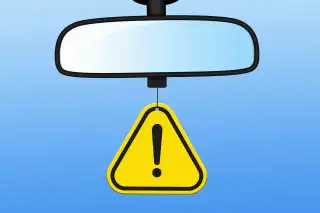Car Insurance Rates Can Spike Based on Your Age, Gender, and Credit Score — in Addition to How You Drive

We love our cars, but no one likes paying their car insurance. It can be a hefty expense each month, and how much it costs is very much dependent on your demographic profile and your driving record—factors that insurers use to determine your rate.
There are certain things you won’t be able to change. Among the things impacting the car insurance price per individual, according to insurance comparison site The Zebra’s director of communications Nicole Beck, are your age, gender (in many states), and even your exact ZIP code. These are the kind of overarching facts outside of behavior that an insurer takes into account when sizing up a customer. (Hint: Being a male teenage driver often means you seem risky.)
But there’s a whole host of things you can do to more easily and directly influence the rate of your car insurance, including even possibly dropping it significantly. Here are some ways to think about affecting your car insurance rate with your own habits and decisions, according to experts.
The right car, the right credit, the right price
If you’re mystified by how exactly your car insurance rate is determined, you’re not alone. From the perspective of insurers, that’s kind of the whole point.
“Each insurer has a proprietary algorithm that dictates rates for each driver based on numerous factors,” Beck explains. “Insurers do not make this ‘secret sauce’ public, but they must file it with each state's insurance regulator and get the rates approved every year or every six months.”
As a rule, though, there are obvious things in your control that help lower your premium rates, and not all of it comes down to how you act on the road.
What you’re driving is also critical, Beck notes. The vehicle make and model are considered by insurers in determining rates. A car that’s rated as a highly safe pick, like a Honda Accord four-door sedan, is a positive sign to your insurer. A vintage muscle car that’s not up to modern safety standards might get you in trouble.
While it doesn’t necessarily relate to your driving behavior, credit score is another element that can impact your particular insurance rate. According to the industry-sponsored Insurance Information Institute, credit history is "a good predictor of insurance claims. Statistically, people with a poor [credit] score are more likely to file a claim." Keeping your debt under control, as in all financial endeavors, offers a big benefit.
The “how you drive” factor
Of course, how you handle yourself behind the steering wheel is crucial to your auto insurance rate, at least over time. Insurers regularly inspect a driver’s history and habits.
You should expect your insurance cost to “increase if you get a ticket or violation in any given state,” Beck advises. “Drunk driving and reckless driving are usually the most expensive” offenses. Just one DUI conviction can be a mighty blow to your status in an insurer’s eyes, resulting in a skyrocketing rate.
It’s best to think of your driving habits holistically when wondering how they affect your insurance rate.
“Things that indicate to the insurance company that you are not as responsible will raise your rate,” Beck adds. “This could be things like not having car insurance in the past, or having it only sporadically, or getting in more accidents,” even if they’re minor.
Even without accidents, other habits may come into play. Rates can be based "on miles driven and time of day you usually drive,” says John Gattuso, co-founder and CEO of FIXD, a tech company allowing users to monitor the health of their cars. Driving at night for long hours, for instance, is more dangerous so rings alarms for insurers.
Hard and fast tips to lower car insurance rates
Beck has several concrete strategies for people to adopt when trying to influence their car insurance rate in a happily downward direction.
The first and most obvious is to “maintain a clean driving record with no accidents or violations,” she says. But she also recommends sneakier tips: Bundle your auto insurance with your homeowner’s or renter’s insurance, to earn a bundling discount. Paying in full or in six-month increments, rather than every month, may also earn you a break on your rate. Try to raise your credit score by a tier. And buy a used vehicle instead of a new one, to save on the cost of coverage to repair or replace the car.
Technology may be advantageous, too. Most major auto insurance companies now have programs that monitor your driving, Gattuso notes, such as Allstate Drivewise, State Farm Drive Safe & Save, and Progressive Snapshot. These employ telematics, an emerging technology in which devices, including smartphones, allow insurers to track your driving behavior in the background. “Factors like your speed, whether you brake hard, accelerate fast, and turn or corner aggressively also come into play," Gattuso says. You may earn discounts if the monitoring finds you're avoiding such hazardous behaviors.
And don’t forget to always shop around, Gattuso adds. However bumpy your history on the road, comparing different quotes from various companies may indeed be the fastest way to a better rate.
More on Car Insurance
Money’s Top Picks
Car Insurance Reviews Learn More |